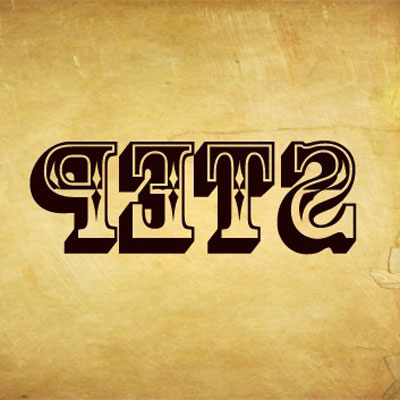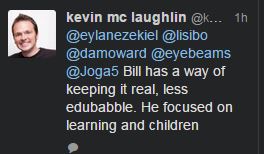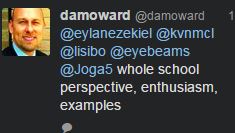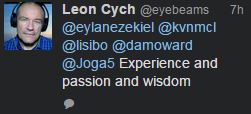Andrew Old makes a simplistic, but consistent, argument for how the members of the new College of Teaching should be constituted. Just teachers, he says. Simple. But, in seeking simplicity, he seems to miss equally simple ways to enhance the profession through the rich diversity of our profession.
Given he was at the same fantastic ‘founding’ event in Birmingham yesterday, to think through these issues, I am surprised he did not consider many of the sensible suggestions that were made.
I was asked (at short notice) to be one of the facilitators, which perhaps made it easier for me to be on ‘listen’ mode, rather than ‘broadcast’. I came away from the day enormously impressed with the positivity and problem-solving ability of the colleagues in my group. Assuming this was multiplied across the country, I found myself believing, and not hoping (for the first time), that we could do this ourselves.
I have had doubts and concerns about the way that this College of Teaching is being formulated – but I found myself with others who also had concerns but were prepared to work through them to develop a professional body to raise our status and protect education from political interference.
My group included a Headteacher, a f/t head of department, an ITT lecturer, a senior leader, and a p/t teacher who has been in and out of the profession doing other things (me)!. Together, we were able to form effective and thoughtful prospective solutions to some of the knottier problems we were asked to discuss.
On the key issue of “Who is a Teacher?” – we resolved it with a solution that I think even Andrew might compromise on.
In order to be a full member of the College of Teaching, a teacher:
-
has Qualified Teacher Status
-
must be teaching or have taught, in the classroom, on a p/t or f/t basis for at least a term, within a two year period (including SLT, Heads, DHTs).
-
teach children (not adults) upto and including the age of 18 (see exception below)
-
can also be those involved in ITT who also teach children, as part of training adults to become teachers
We felt it was essential to allow freedom of movement in and out of the profession – to explore other roles, conduct research, develop new skills and maybe even just take a break from teaching – but still be allowed to develop professionally. Of course, people can take a ‘membership break’ – but we felt a 2 year gap might be a clear enough marker for most.
So, what do you think? Does this solution work for you? Would this keep everyone in the COT, and stop a few from throwing their dummies out?











 I will also be hosting #UKEdChat on October 30th, at 8pm, to discuss the place of Arts and Culture more deeply. I really hope you can join me.
I will also be hosting #UKEdChat on October 30th, at 8pm, to discuss the place of Arts and Culture more deeply. I really hope you can join me.